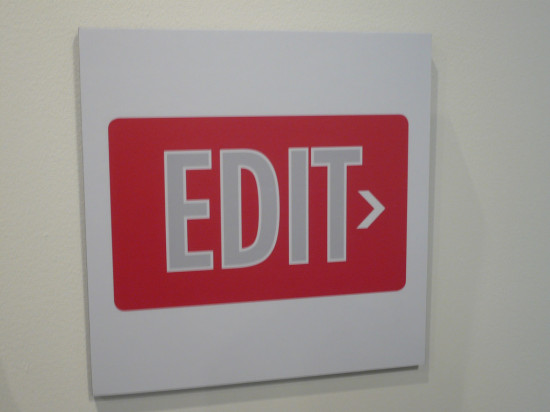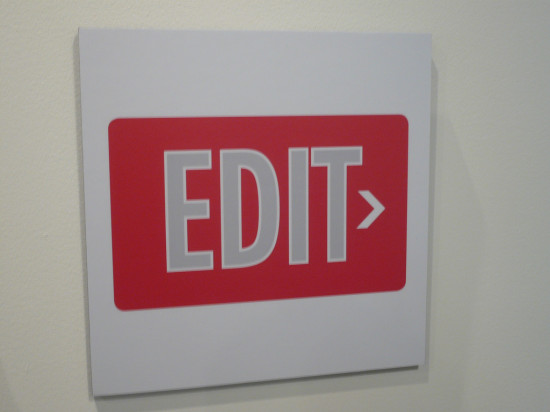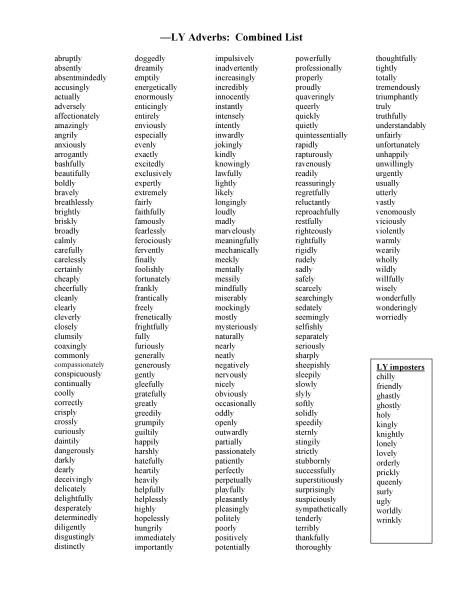10 Great Pieces of Advice About Editing

Never Trust Editing Software
It’s actually quite comforting to know there are some things a machine can’t do effectively: writing is one of them, editing is another. Don’t rely on spell checkers, grammar checkers or any other writing programs to catch all of your errors. At least your eyes and your brain will never be made redundant by a machine. The Matrix needs us.
Let It Lie for a While
The worst possible time to try and edit something you’ve written is right after you write it. I find the greater the distance in time between me and my written work, the more effectively I’m able to edit it. It’s as if it becomes someone else’s work. I can read it impartially and with fresh eyes, picking out mistakes I previously missed. 24 hours is the absolute minimum, and 48 hours is even better. Do I practice what I preach? Ahem…
Read It Aloud
Yes, I know it feels dorky. Just pretend you’re a TV news reader or the narrator for a documentary. Put on your best “announcer” voice and read it as if it were a script. You can also have a program read it to you with the Word Counter proofread feature. (If you don’t see it above the text area, go to “options” and then click on “buttons”) Does anything make you falter? Are there sentences that sound weird? Did you need to pause at a place where there was no punctuation mark? These are areas that probably need tweaking, even if you can’t actually put your finger on the reason why they’re wrong.
Trust Your Instincts
It gets harder when you’re editing someone else’s work. You don’t want to offend them by making unnecessary changes. Sometimes, things are said in a way you wouldn’t have done it. Is it wrong? Maybe not, but I’d still advise an adjustment. When I edit, I can’t always say exactly why I changed this or that sentence, but in time, I’ve learned that my instincts are often right. It’s better to make an unnecessary change than to skip a change just because you aren’t sure how to explain it.
Track Changes
When editing another person’s work, track changes so they can decide if they want to accept your judgment or not. Then create a “clean” version (after saving the “changes tracked” one), and check again. I often find I pick up additional errors. Don’t ask me why. Maybe one doesn’t see everything the first time around. With your own work, there’s no need to track changes, but the final proofread rule still applies.
Look out for Ambiguity
You can be ambiguous without actually making a grammatical error. You know what you meant. Did you say what you meant? Imagine you know nothing about the topic and are reading about it for the first time. Does it make sense?
Pay Extra Attention to Long Sentences
The longer the sentence, the more likely it’ll contain an error. Have you put a comma where a period would be better? Is your thought presented in a crisp, clear way, or have you become tangled up in your own words?
Does Everything You Have Written Contribute?
When writing an essay, you’re trying to get a point across. Anything that doesn’t actually contribute to the point is redundant. Even in creative writing, there has to be a reason for everything you have said. You could be contributing to the atmosphere or providing background, but if what you’ve said does not contribute something, it’s just padding that waters down your prose.
Beware of Punctuation
It’s worth studying how to use punctuation marks. Commas, semi-colons, colons and dashes are often used incorrectly. Have you used them correctly? When in doubt, check. If you’re still not sure, rephrase.
Know Your Vices
When editing your own work, it’s good to know what mistakes you commonly make. Since you probably make them without even realizing it, have someone who knows their stuff give some of your writing a look over to point them out. Ask questions and learn to identify your slips. You’ll probably find your slips a few times before the lesson sinks in.
(Photo courtesy of Matt Hampel)


